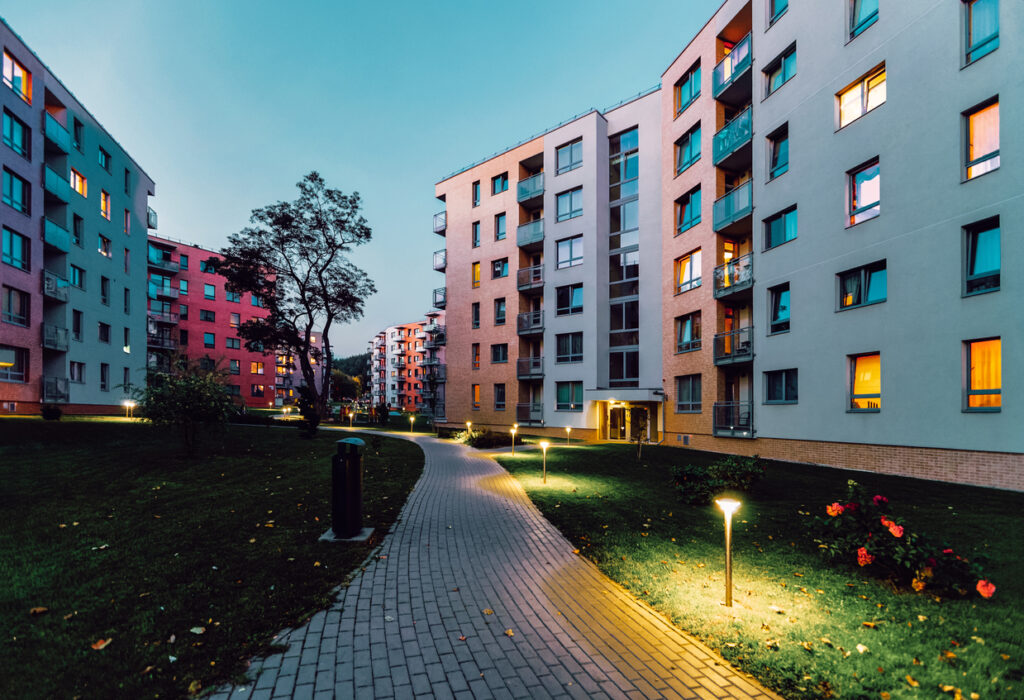Switzerland is a country of renters, with 2.4 million households living in rented accommodation, compared to 1.4 million households that are owners. Accordingly, tenancy law plays an important role in everyday life in Switzerland. This is basically designed to be tenant-friendly, to ensure a fair relationship between landlords and tenants and to protect the interests of both parties. This blog post highlights the most important rights and obligations of landlords and tenants.
Table of contents
ToggleObligations of landlords
Landlords are obliged to hand over the property in a contractually compliant condition and to maintain this condition throughout the entire rental period. This includes ensuring that the apartment is habitable and free of defects and that all contractually agreed facilities are available. The landlord must maintain the apartment by eliminating defects that were not caused by the tenant and carrying out necessary repairs and renovation work. The tenant’s privacy must also be protected. The landlord may only enter the apartment with the tenant’s consent or in emergencies. Finally, the landlord must comply with all relevant legal provisions, including the Swiss Code of Obligations and the ordinances on the letting and leasing of residential and commercial premises.
What do you need to look out for when letting a flat or house?
Rights of landlords
Landlords have certain rights that are set out in tenancy law. This includes the right to demand the rent agreed in the tenancy agreement. This is made up of the net rent for the use of the apartment and the ancillary costs for ancillary services such as heating, water and waste disposal. Under certain circumstances, the landlord can also increase the rent, for example if the reference interest rate rises, inflation increases or if the apartment has been renovated.
Is your rent in line with the market?
Checklist for rental adjustments
Landlords are also entitled to terminate the tenancy agreement if the tenant is in arrears with the rent or does not use the apartment in accordance with the contract. The landlord is permitted to enter the apartment for certain purposes, such as repairs or inspections, but must give the tenant prior notice of these visits.
Obligations of tenants
Tenants are obliged to pay the contractually agreed rent and ancillary costs, the amount of which is usually specified in the tenancy agreement, on time. They must also treat the rented property, i.e. the apartment or house including the associated facilities, with care. However, the landlord must accept normal signs of wear and tear. Tenants are also obliged to report defects such as damage to floor coverings, water damage or mold to the landlord immediately. In many apartment buildings, the house rules must be observed. Among other things, this regulates rest periods, the use of communal areas and waste disposal.
Tenants’ rights
Tenants have the right to an apartment that meets the basic requirements of habitability and safety. The apartment must be clean, dry and heatable, have functioning sanitary facilities and must not have any safety defects. In addition, the tenants have the right to use the rented apartment without restriction. This means living in the apartment without any disturbance from the landlord. In Switzerland, rents are regulated by a rent cap system that limits arbitrary increases by the landlord and is generally based on cantonal or regional regulations. Tenants are also subject to a certain protection against dismissal, which prohibits the landlord from terminating the tenancy without good cause. Justified grounds for termination can be, for example, personal use, late payment or serious breaches of contract on the part of the tenant.
Are you a tenant?
Conclusion
Tenancy law in Switzerland aims to create a balanced relationship between the interests of tenants and landlords. Both parties bear responsibility and have various rights and obligations that they should be aware of and comply with
It is important for tenants to find out about their rights and to enforce them in case of doubt. They can turn to tenants’ associations for help.
Landlords should also be aware of their obligations and fulfill them conscientiously. This includes in particular the provision of a habitable apartment and the maintenance of the rented property.
Ein faires und respektvolles Miteinander zwischen Vermietern und Mietern ist die Grundlage für ein harmonisches Mietverhältnis.
All data are without guarantee. The information on these Internet pages has been carefully researched. Nevertheless, no liability can be assumed for the accuracy of the information provided.












